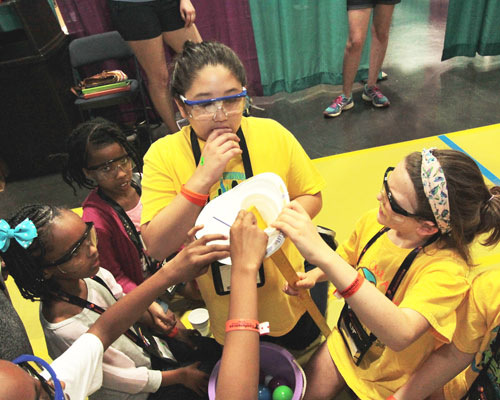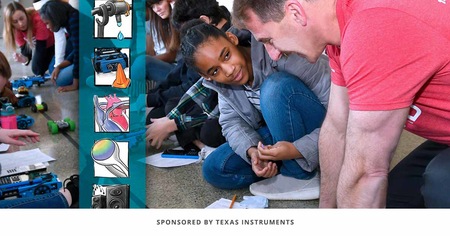STEM education helps our students develop curiosity, creativity, and problem-solving and deductive reasoning skills. The STEM Education Coalition realizes the important correlation between the development of these skillsets and nation's success.
In this report, the STEM Education Coalition Policy Forum states, "Exposure to formal and informal learning in STEM subjects, beginning at an early age and continuing through high school, prepares our nation's students for the future ahead. Supporting quality science, technology, engineering and mathematics for all children and youth is therefore vital to our country's social and economic prosperity."
In 2014, a survey completed by the heads of major United States corporations indicated that approximately 60 percent of job openings require STEM literacy; however, according to the Council on Foreign Relations, 60 percent of U.S. employers struggle to fill these jobs with qualified workers. The inconsistent availability of quality afterschool STEM programming contributes to this problem.
If we want an all-hand-on-deck approach to STEM-based learning, these concepts must not only be presented in the classroom, but also during out-of-school time. In fact, according to a 2015 report completed by the National Research Council's (NRC) Board of Science Education, out-of-school programs "contribute to young people's interest and understanding of STEM, connect young people to caring adults who serve as role models, and reduce the achievement gap between young people from low-income and high-income families."
We all understand the importance of integrating STEM curriculum into afterschool programs. Despite the facts, STEM education delivered through an informal setting is often considered an afterthought. The challenge is, how do we make informal education a core aspect of federal STEM education policies?
Recommendations from the STEM Coalition Education
1. Policymakers must understand that informal education enhances STEM education. Informal educators should be considered valuable partners in terms of STEM education improvements.
2. Education reform policies should stipulate that informal programs be made eligible for federal grants that support STEM education goals.
3. Dedicated funding should be provided to informal STEM education programs.
4. STEM-centric federal professional development programs should support teachers and afterschool educators.
5. The executive branch must develop strategically coordinate and manage investments made to support informal STEM education.
If policymakers fully appreciate the importance of informal STEM education, our students—and society as a whole—will reap the rewards. Read the STEM Education Coalition report The Case for Investing in Out-of-School Learning as a Core Strategy in Improving Science, Technology, Engineering and Mathematics (STEM) Education to learn more.
Written by Lisa Stickler, staff writer for AfterSchool Today magazine.




